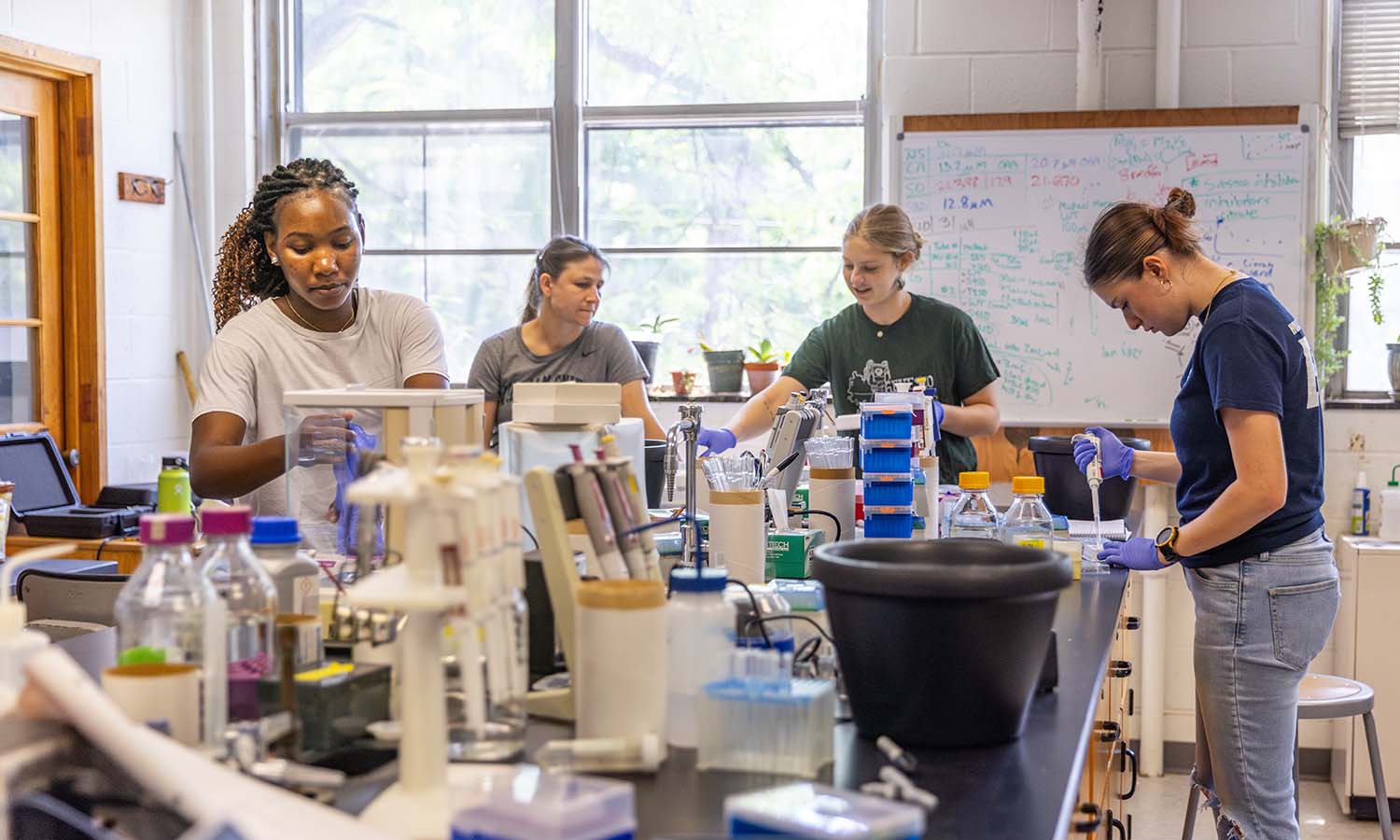
HWS News
1 August 2025 • Research • STEM Discovery of an Enzyme
Under Professor of Chemistry Kristin Slade, three students have explored the effects of altering conditions for an enzyme in the metabolic system.
Catherine Antoulinakis ’28, Selina Owino ’28 and Nora Smith ’27 have spent the summer studying how the enzyme Malate dehydrogenase (MDH) supports human metabolism and how its activity changes in different environments with guidance from Professor of Chemistry Kristin Slade.
MDH is a highly regulated enzyme. It can switch "on" or "off" depending on the conditions. This switching happens when chemical groups like phosphate are added or removed, helping the body control when and how the enzyme works.
“When it doesn’t turn off at the right times, it can lead to the creation of diseases,” says Slade.
In their work, the students have been using mutant variants of MDH under different conditions.
Antoulinakis, who has been crowding the enzyme or taking another molecule and adding many of them into a kinetic reaction in hopes of increasing the effective concentration of MDH, is grateful for the experience.
“I intend on going to medical school, potentially becoming a medical doctor, so this experience could be useful in becoming a well-rounded candidate,” says Antoulinakis, a biochemistry major.
Owino, a biochemistry major, discovered that with too much substrate, the reaction process slows down. Smith, a biology and public health studies double major, learned that citrate can inhibit the enzyme.
The experience has also improved their roles as learners and researchers.
“There are times when I just feel like giving up but staying positive that it will work out and my passion for science has kept me going,” says Owino.
Smith says that while she doesn’t plan to pursue research long-term, the experience has been invaluable in helping her clarify her interests and better understand what she’s most passionate about.
Slade says the work has helped the students both understand the fundamentals of how the human body regulates metabolism and has helped the students develop their critical thinking and writing skills.
“I think this work gives a perspective of the lab that you don’t get in teaching that goes with resilience and building soft skills,” says Slade.
Top: With Professor of Chemistry Kristin Slade, Selina Owino ‘28, Nora Smith ‘27 and Catherine Antoulinakis ‘28 study Malate dehydrogenase in Lansing Hall.



